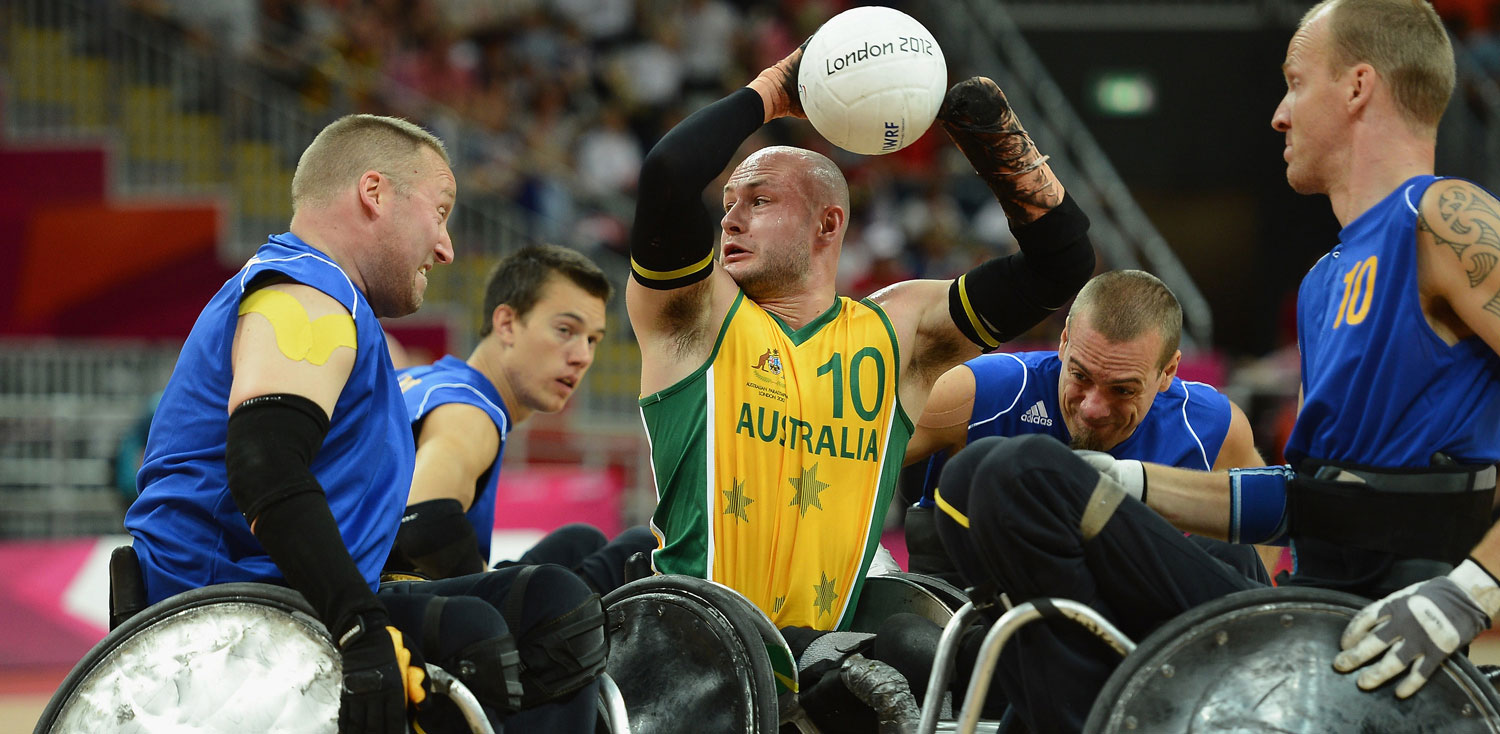Chris Bond OAM is a senior member of the champion wheelchair rugby team that won a gold medal for Australia at the London 2012 Paralympics. The subject of the Oscar-nominated documentary Murderball, wheelchair rugby is a fast and furious game that is played very often by severely disabled men and women.
Each team is allowed up to 12 players, but only four are allowed on the court at one time. The game is played in eight-minute quarters using a volleyball, which can only be passed by dribbling or bouncing (a requirement every 10 seconds).
Bond has a 3.5 classification, which denotes highest-functioning player on the team – the lowest-functioning player is classified 0.5. His role as ball carrier and goal scorer means he has the ball most of the time. “I’m the major threat to the opposition, so they’ve usually got three or [more] defenders on me all the time,” he says. “I need to use my screens – my lower-functioning guys – or I will expose myself. They do the hard work in defending and setting the picks, so I can get through the gaps.”
Bond says the sport is quite broad, played by amateurs and at the elite international level. “At amateur level it can be very chaotic, there’s going to be a lot of dropped balls and guys running into each other.
“At the elite level it’s very strategic and you really have to use your teammates. As with any contact sport big hits are going to be on at times, but not in every single game and with every player – but that’s all you get [to see] in the highlights. If you watch a full game, especially if you watch it live, you’ll see how everyone’s doing their job in different areas of the court.”
Leadership in 60 Seconds
Who would you invite to a leadership lunch for four?
I’d have my captain, Ryan Scott, of the Australian Steelers and Andrew Young, the old CEO of CanTeen – he’s a great leader, and my partner Bridie Kean – she was captain of the women’s wheelchair basketball team in London.
Which business leader do you most admire and why?
I’m pretty new to this business world, so currently I’d say our CEO Patrick Walker of the Australian Sports Foundation. He came from a senior role at PwC and he took a pay cut and a life change to work for a not-for-profit, to help sport.
Facebook, LinkedIn or Twitter?
I’m probably more on Facebook.
Email or phone call?
Either or, but email usually gets to me because I’m pretty busy.
What sporting leader do you most admire and why?
Currently, I think [cricketer] Steve Smith’s a good example. He’s pretty young and came through at a young age. And he’s always led by example and his actions speak for him in his performance.
In a sentence, what does good leadership look like to you?
Integrity and resilience, confidently pursuing passion with humility.
If we interview you in 10 years’ time, what will you be doing?
I think I’ll be married and have a family and have bought my first house, which will be great. I think I’ll be in a coaching-mentoring role in sport, elite sport, maybe in disability sport – and probably in a leadership role in my organisation.
So where do you keep your Gold Medal?
It’s in my office in a drawer – I just moved into the house and my trophies are in boxes. But this comes out when I go to schools or meet my friends’ kids.



